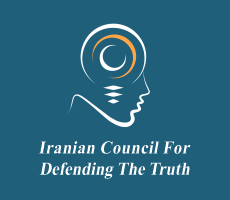This political assassination of a nuclear scientist is a highly provocative act of state terrorism that circumstantially strongly implicates Israel and seemingly somewhat less directly, the United States. To assassinate someone of Professor Fakhrizadeh’s stature is also, given the timing of the presidential transition taking place in the U.S., seemingly intended as a provocation designed to induce Iran to retaliate in some way that will escalate regional tensions and war risks while Trump remains in the White House.
I do know that Netanyahu in an aggressive 2018 speech ominously mentioned Fakhrizadeh by name, almost implying that he was on the Mossad hit list. This incident should serve to give rise to a movement at the UN and in civil society to include ‘extra-judicial executions’ and ‘politically motivated assassinations’ as ‘state terror’ and to be included in the Rome Statute as a specific Crime Against Humanity that would give authority to the International Criminal Court in The Hague to investigate and prosecute.
Iran so often victimized by such state terrorism should play a leading role in seeking to criminalize political assassinations undertaken by governments, and this would include drone warfare. The UN Human Rights Council in Geneva would be one appropriate institutional setting within which to raise these concerns. Another possible avenue of redress would be to seek an Advisory Opinion from the International Court of Justice on the basis of a request by the UN General Assembly. Although these initiatives are within the domain of ‘symbolic politics’ their successful enactment would have substantive ramifications.
In my judgment, recalling the January assassination of General Soleimani, seeking official expressions of censure and condemnation is appropriate, but insufficient. The EU Parliament should be urged to make action proposals along the lines depicted in my prior response. This behavior should no longer be protected behind the curtain of geopolitical impunity. Almost all sovereign states have a shared interest in criminalizing this form of behavior and providing norms, procedures, and institutional venues that can provide prompt and effective legal remedies to victim countries. Given current technologies and tactics of international conflict the implementation of the existing prohibition on government-sponsored political assassinations should be treated as an urgent priority, regionally and globally.
As an American critic of such a provocation, it is not my place to give unsolicited advice to the government and leadership of Iran. Too often Americans in good faith think they know better despite their lack of relevant experience. We need the humility of silence. Having so declared, I would still suggest consideration of the courses of action mentioned in my prior lines. Such action would appropriately issue from Iran but it is important for virtually the entire world, and especially to uphold the sovereign rights and security of vulnerable states.
In all instances of confrontation diplomacy seems more constructive than retaliation and revenge, but diplomacy depends on some level of receptivity and reciprocity. During the Trump/Netanyahu period there has been a pronounced rejection of diplomacy with respect to Iran, and reliance on unlawful threats and violent acts, a regression from the moves toward normalization in the last years of the Obama presidency. An aspect of a diplomatic approach would be to include Israel’s nuclear weapons status and arsenal as part of a more ambitious plan to denuclearize the Middle East, with special emphasis on Israel and Iran. Such an approach could seek the establishment of a Middle East Nuclear Weapons Free Zone, a proposal put forward at various times in the past, but now more relevant than ever.
Given the close likely ties between Israel and the U.S. during the forthcoming Biden presidency, it would be unrealistic to expect this kind of denuclearizing proposal to gain much political traction. It may be best to think of two stages: Stage 1: Restoring the 2015 Agreement on Iran’s Nuclear Program, coupled with an ending of sanctions, and overall normalization of relations with Europe and the U.S.; Stage 2: Regional denuclearization with the inclusion of Israel and the backing of the UN Security Council.
Despite the uncertainties of the present phase of international relations, abetted by the COVID pandemic, there are opportunities for creative diplomacy and the promotion of stability in several theaters of strife and mass suffering within the Middle East.

